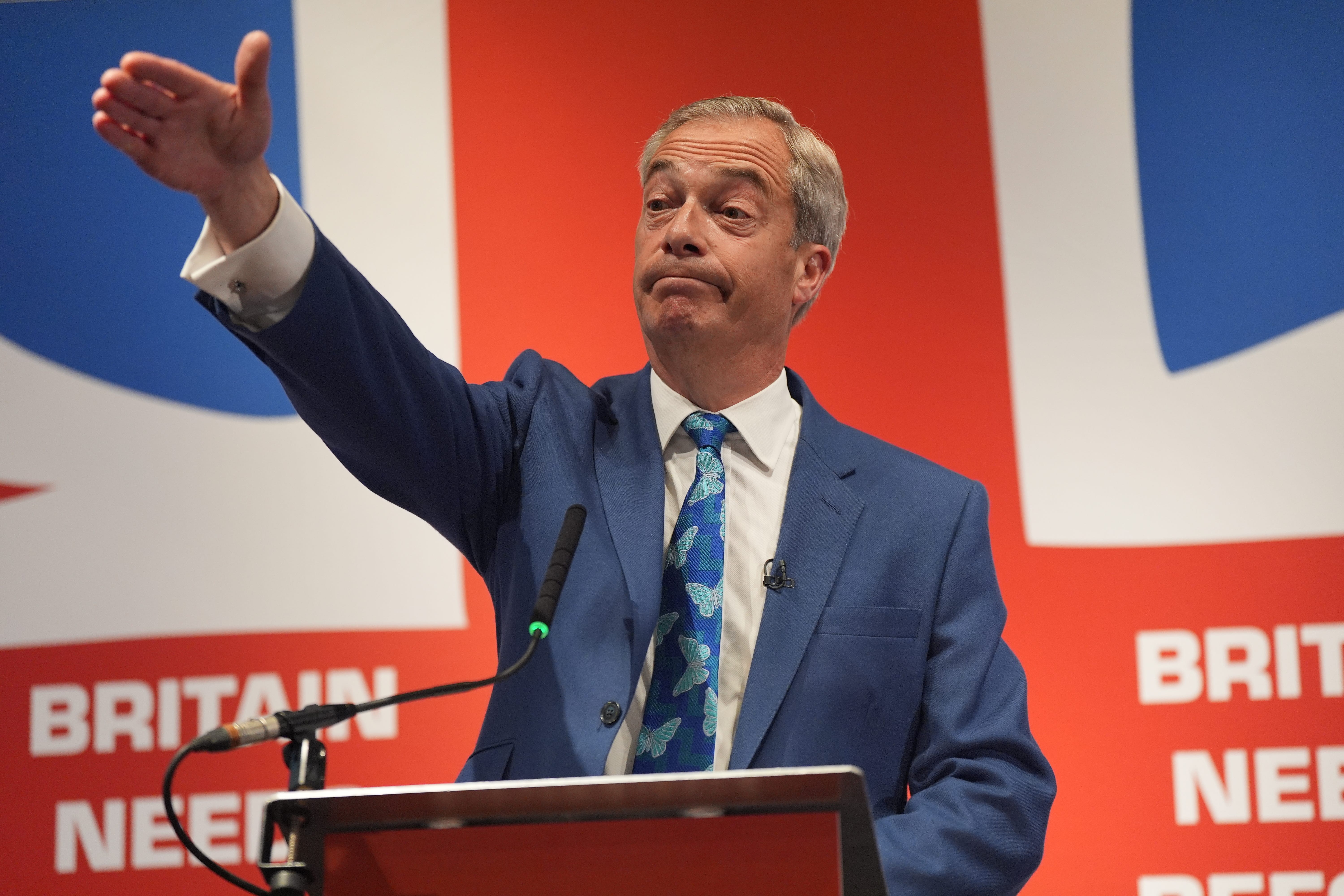Nigel Farage’s wild plans for the Conservative Party are doomed
The Reform UK leader’s return to frontline politics is less about influencing the general election than it is about reshaping the Tories in opposition – and steering them to the right. But, says John Rentoul, here’s why he will fail


Nigel Farage has lost none of his skill in the art of politics as drama. Had he been leader of Reform UK at the time the general election was called, announcing sooner that he would be a candidate in Clacton, by now he would be struggling to persuade journalists to come to his news conferences.
Instead, he has “gingered up” the election and made it all about him – ruthlessly exploiting Rishi Sunak’s stumbling start to the campaign, and announcing his return on the same day that a YouGov MRP poll, the gold standard of seat-by-seat models, projected a Labour majority greater than Tony Blair’s.
Sunak saw him coming. We should give the prime minister credit for that, at least. One of the reasons for calling an early election was to try to catch Reform off balance – and it seemed to have succeeded, until Farage, who said he didn’t have time to stand for parliament, suddenly changed his mind.
The first phase of the campaign was designed to try to bring Reform voters back to the Tories, with policies for national service, a pensioners’ tax cut and scrapping “Mickey Mouse” degrees. But that part didn’t work, and the “squeeze Reform” strategy now lies in ruins.
Sunak can hardly change course now and head for the centre ground, because all his attempts to appease Farage have contaminated his pitch as a compassionate technocratic Tory. Today, the Tories press on with their campaign against Reform, announcing a plan to cap visas, as if tonight’s TV debate with Keir Starmer is a sideshow.
The other Tory attack that has failed is “a vote for Reform is a vote for Keir Starmer”. It was the one that caused Farage the most difficulty at his resurrection news conference, though. He tried to deny it, claiming that Reform would take as many votes from Labour as from the Conservatives. This was true in the glory days of Ukip, but after the Brexit realignment of politics, it is not true now. As the Ukip successor party, Reform takes its support almost exclusively from former Tory voters.
Farage knows this, so he tried another tack, which is that he doesn’t care. “Starmer has won this election,” he said. But it was nothing to do with him – the Tory party had “crushed itself already”.
Later, he settled on a new formula combining both approaches to Starmer: “Yes, he’s going to win – but we’re going to make sure his percentage is smaller.”
We will see about that – but it did feel as if Farage’s return is all about what will happen after the election rather than before. His stream of consciousness last week about a “takeover” of the Conservative Party suggests that he has grand ambitions without a plan to achieve them. Indeed, he admitted he had no idea what he was doing, saying he wanted to “re-shape the centre-right, whatever that means”, but his approach to politics is all about feelings and never mind the specifics.
After the election, however, the Tory party will be liberated from the specifics of government, and will be freer to compete with Reform on the politics of making stuff up.
If we wanted an example of how ropey Farage is on the specifics of even his most important subject, immigration, take his interview with Mishal Husain on the Today programme on Tuesday. Asked about his target of net zero immigration, he said that 600,000 people emigrate from the UK each year (in fact, it was 532,000 last year), so “you’d still have room within the labour market for up to 600,000 – hopefully, we wouldn’t need that many”.
He is not interested in the detail: “It’s far too many, but if that’s what we need and if it makes you happy, that’s what we’ll do.”
What we “need” might be the important question, but it was swept aside. Just as Reform’s policy on stopping the boats is essentially “war with France”: the party opposes the Rwanda policy on the grounds that it won’t work, and insists that the Royal Navy can simply return migrants to the quay at Calais.
I have underestimated Farage before, so I should be cautious, but it seems that his wild notion of replacing the Tories as the main opposition party is doomed. After the election excitement subsides, he is likely to be the sole Reform MP, and in the end there is a low ceiling on the level of support that he is capable of gaining.
Remember that Vote Leave, run by Dominic Cummings, wanted nothing to do with him, and the EU referendum was only won because Boris Johnson, a liberal Tory, put himself at the head of the campaign.
I suspect that Farage’s contribution to this election will be to increase Keir Starmer’s majority and to delay the Tory recovery – but not to destroy the Tory party.






Join our commenting forum
Join thought-provoking conversations, follow other Independent readers and see their replies
Comments